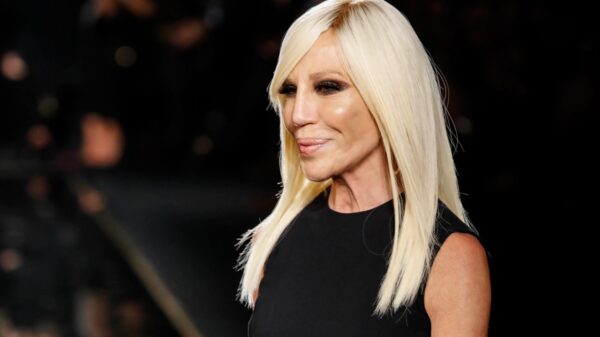Consumer Demand for Transparency: Redefining Accountability in Fashion
The modern consumer is demanding greater transparency from brands, particularly regarding their sustainability efforts. This growing expectation is reshaping the fashion industry, compelling companies to demonstrate genuine commitment to social and environmental responsibility. Transparency is no longer an option but a critical factor in building trust and loyalty among ethically conscious consumers.
The Rising Importance of Transparency
Transparency has become a key determinant in consumer purchasing decisions. Shoppers are increasingly aware of the environmental and social impact of their choices and expect brands to share detailed information about their practices. From sourcing materials to labor conditions, transparency provides consumers with the knowledge needed to make informed decisions.
Connecting Transparency and Sustainability
Transparency and sustainability go hand in hand. Consumers want assurance that the brands they support are actively reducing their environmental footprint and adopting ethical practices. Companies that openly share their sustainability initiatives and progress reports build credibility and set themselves apart in a competitive market.
The Role of Certifications and Labels
Certifications and eco-labels have become important tools for brands to demonstrate transparency. Labels like Fair Trade, GOTS (Global Organic Textile Standard), and Carbon Neutral indicate adherence to specific ethical and environmental standards. These certifications provide consumers with visible proof of a company’s commitment to sustainability.
Technology Enhancing Supply Chain Transparency
Advancements in technology are revolutionizing supply chain transparency. Blockchain, for example, allows brands to provide traceable records of their production processes, ensuring authenticity and accountability. Digital tools enable consumers to track the journey of their products, from raw materials to final purchase.
Consumer Expectations for Ethical Labor Practices
Labor practices are a major concern for ethically conscious consumers. Transparency regarding wages, working conditions, and supplier relationships is essential for brands to build trust. Companies that fail to address these issues risk backlash and loss of consumer confidence.
Building Trust Through Honest Communication
Honest and clear communication is vital for transparency. Brands that acknowledge challenges and setbacks in their sustainability journey are often seen as more authentic than those that present an idealized image. Open dialogue fosters trust and allows consumers to feel connected to a brand’s mission.
Social Media’s Role in Demanding Accountability
Social media platforms amplify the demand for transparency by enabling consumers to voice concerns and hold brands accountable. Public discussions about unethical practices or greenwashing can quickly gain traction, urging companies to prioritize genuine efforts and transparent communication.
Tackling Greenwashing in the Fashion Industry
Greenwashing, the practice of misleading consumers about environmental efforts, undermines trust and transparency. Consumers are becoming more adept at identifying false claims and demand substantiated proof of sustainability initiatives. Brands must ensure their messaging aligns with their actions to avoid scrutiny.
Transparency as a Competitive Advantage
Brands that prioritize transparency gain a competitive edge by appealing to the growing demographic of socially and environmentally conscious consumers. Transparency not only builds trust but also differentiates companies in a crowded marketplace, fostering long-term loyalty.
Educating Consumers About Transparency
Educating consumers about what transparency entails is crucial. Clear explanations of sustainability efforts, certifications, and supply chain details help consumers understand the importance of these initiatives. Knowledgeable consumers are more likely to support brands that align with their values.
The Financial Benefits of Transparency
Transparency can drive financial benefits for brands. Consumers are willing to pay a premium for products from companies that demonstrate ethical and sustainable practices. This willingness highlights the growing value placed on transparency in today’s market.
Challenges in Implementing Transparency
Implementing transparency is not without challenges. Complex supply chains, lack of standardized reporting methods, and high costs can make transparency difficult to achieve. However, brands that invest in transparent practices often see long-term benefits in consumer trust and market positioning.
Collaboration for Industry-Wide Transparency
Collaboration among industry stakeholders is essential for achieving widespread transparency. Partnerships between brands, non-profits, and regulatory bodies can establish standardized practices and drive collective progress. Collaborative efforts ensure that transparency becomes a shared priority.
The Future of Transparency in Fashion
The demand for transparency is expected to grow as consumers become more conscious of their purchasing decisions. Emerging technologies, increased regulatory pressure, and evolving consumer expectations will continue to shape the transparency landscape, driving brands to adopt more open and ethical practices.
Redefining Success Through Transparency
In conclusion, consumer demand for transparency is redefining success in the fashion industry. By demonstrating genuine commitment to sustainability and ethical practices, brands can build trust, foster loyalty, and create a positive impact. As transparency becomes a cornerstone of consumer expectations, the industry must rise to the challenge and embrace a more accountable future.
Viola Rowland, an accomplished author at Bee Bumble Entertainment Magazine, blends her love for entertainment with her gift for storytelling. With a knack for capturing the essence of pop culture phenomena, Viola's engaging articles provide readers with fresh insights into the world of entertainment, making her a standout contributor to the magazine.


































